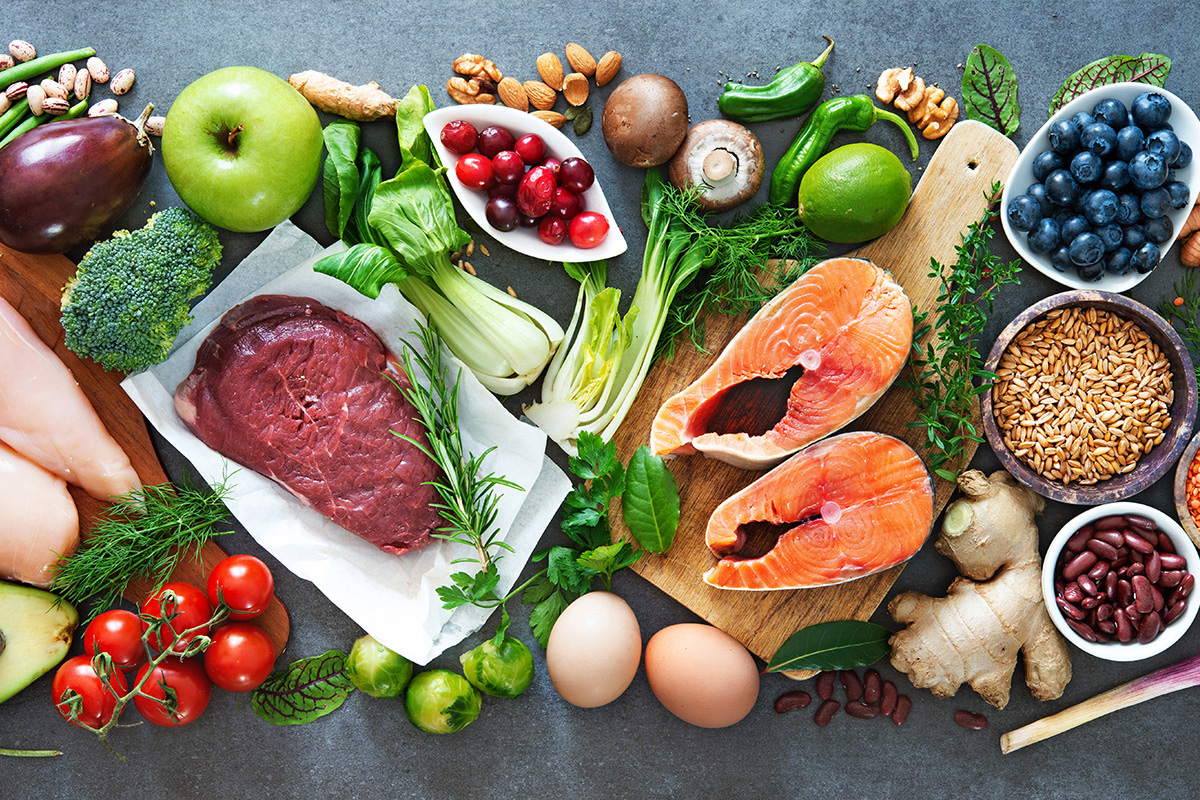
Preparing for a long-distance walking, running, swimming or cycling event demands not only physical endurance but also careful attention to your nutrition.
Achieving peak performance requires proper fuelling, ensuring your body has the energy and stamina needed to conquer the challenge ahead.
To help optimise your training and enhance overall performance on race day, read on.
Tip 1: Prioritise carbohydrates during training
Carbohydrates serve as the primary fuel source for endurance athletes and are stored in your muscles and liver as glycogen1.
While a bit of a funny word, the purpose and function of glycogen is perfectly simple – it’s broken down during intense exercise to provide glucose for energy. Replenishing muscle glycogen stores is therefore essential for athletes to maintain performance during successive training sessions and competitions. And this, as you may have guessed, requires the consistent consumption of carbohydrates.1
We recommend prioritising complex carbohydrates including whole grains, fruits, and a wide variety of vegetables.
Tip 2: Meal times on race day
Consuming a well-balanced meal 3-4 hours before your run, swim or cycle is crucial on race day.
A study published in Nutrients recommends aiming to consume one to four grams of carbohydrate per kilogram of body weight, one to four hours prior to exercise2.
The study also recommends opting for low-glycaemic index carbohydrates to sustain energy levels2. This includes most fruits and vegetables, beans, minimally processed grains, pasta, low-fat dairy foods, and nuts3.
Tip 3: Stay adequately hydrated
Staying adequately hydrated is essential during both training and on race day. Staying hydrated replenishes lost fluids due to sweating, which helps to minimise the risk of heat stress, ensures normal body function, and sustains optimal performance levels.4
A study published in the Journal of Athletic Training recommend post-exercise rehydration and refuelling to occur within two hours using sodium-containing foods and drinks to stimulate thirst and aid fluid retention5.
Sports drinks were cited as a convenient option, offering both sodium and carbohydrates to replenish depleted stores without hindering rehydration6.
Tip 4: Fuelling during the event
Depending on the duration and distance of your run, walk, cycle or swim, it may be necessary to consume fuel during the event to replenish glycogen stores and maintain energy levels7.
In fact, the consumption of carbohydrates can go beyond necessity to downright beneficial. A review published in Applied Physiology, Nutrition, and Metabolism found that 82% of studies showed significant benefits of carbohydrate supplementation on endurance performance8.
It’s important to remember not all carbohydrate sources are equal in terms of energy supply and absorption rates7. Experiment with different forms of fuel, such as energy gels, chews, or real food, to find what works best for your body.
Tip 5: Protein for recovery
After completion of an event, Sports Dietitians Australia recommends consuming lean protein in order to support muscle recovery and repair9.
Sources for lean protein recommended by the Australian Government National Health and Medical Research Council include10:
- Lean meats - Beef, lamb, veal, pork, kangaroo, lean (lower salt) sausages
- Poultry - Chicken, turkey, duck, emu, goose, bush birds
- Fish and seafood - Fish, prawns, crab, lobster, mussels, oysters, scallops, clams
- Eggs - Chicken eggs, duck eggs
- Nuts and seeds - Almonds, pine nuts, walnut, macadamia, hazelnut, cashew, peanut, nut spreads, pumpkin seeds, sesame seeds, sunflower seeds, brazil nuts
- Legumes/beans - All beans, lentils, chickpeas, split peas, tofu.
Tip 6: Consider an individualised nutrition plan
Every athlete is different, and what works for one person may not work for you. A dietitian can recommend experimenting with different foods, timing, and quantities during your training to develop a personalised nutrition plan.
Specialist sports dietitians don’t just work with elite footballers and Olympic competitors. Whether you’re preparing for HBF Run for a Reason, an upcoming cycling event, or a swimming comp, a specialist sports dietitian can prescribe diets and provide advice that may improve your overall health and enhance your performance.
Tip 7: Listen to your body:
And finally – don’t forget to listen to your body. Pay attention to hunger and fullness cues during training and don’t be afraid to adjust your nutrition plan based on how your body responds to different foods and timing.
It’s important to be adaptable and open to making adjustments as needed, recognising that nutritional needs may vary depending on factors such as training intensity, type of sport, and training vs rest day11.
Looking for healthy eating advice?
- HBF diet and nutrition cover can pay benefits towards visits with a dietitian or nutritionist, who can give you expert advice on healthy food choices to optimise your health and wellbeing.
If you’re an HBF member, you can check what you're covered for by logging on to myHBF or calling us on 133 423.
Disclaimer:
This article contains general information only and does not take into account the health, personal situation
or needs of any person. In conjunction with your GP or treating health care professional, please consider
whether the information is suitable for you and your personal circumstances.